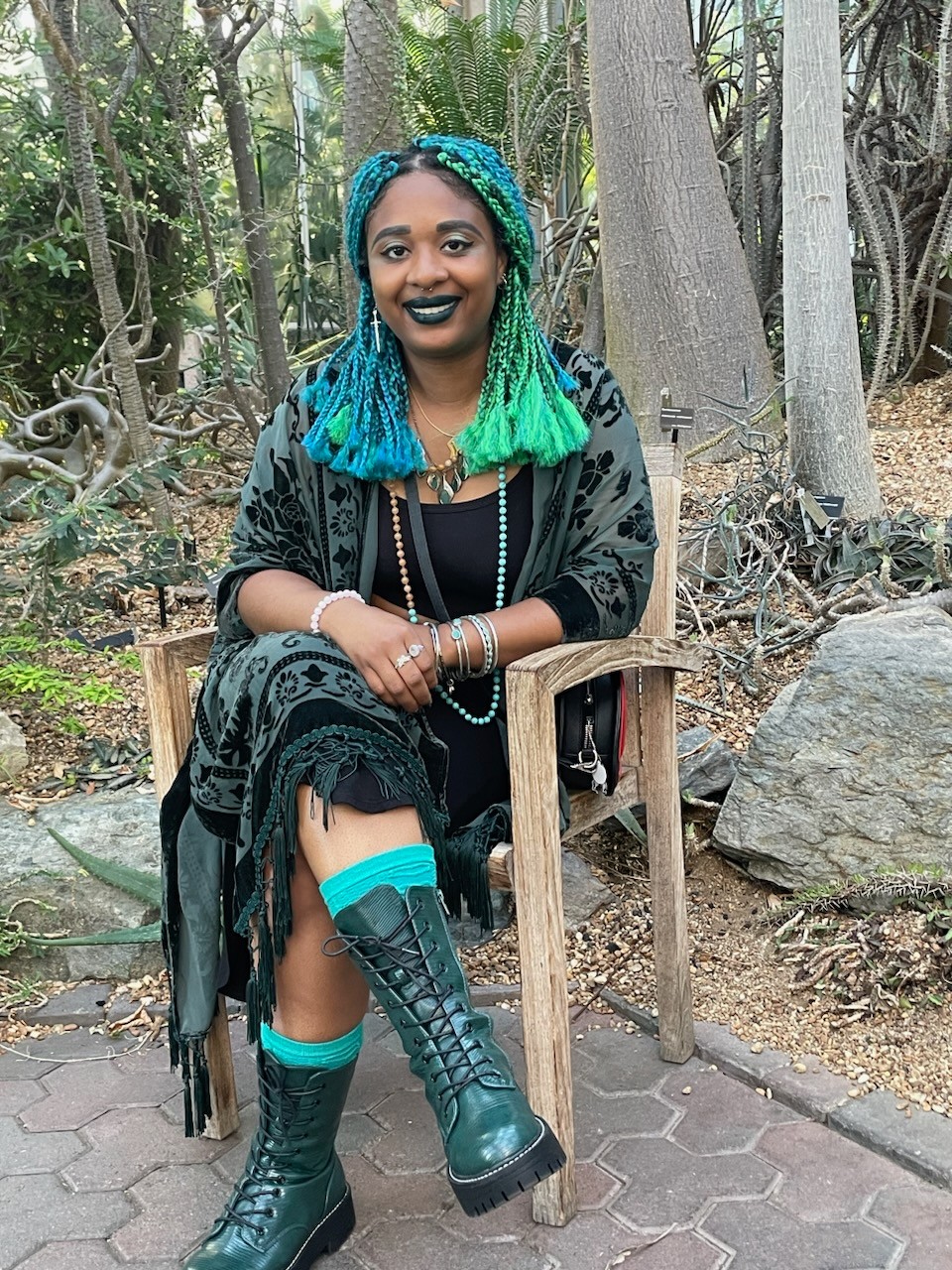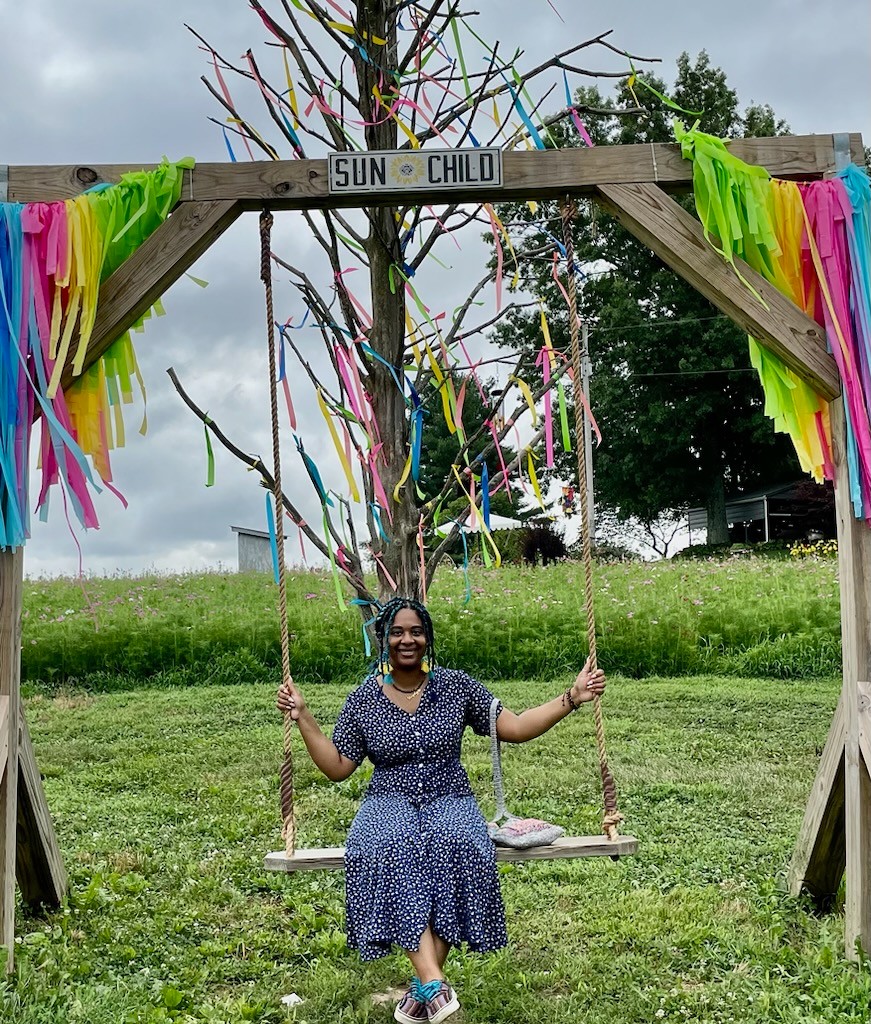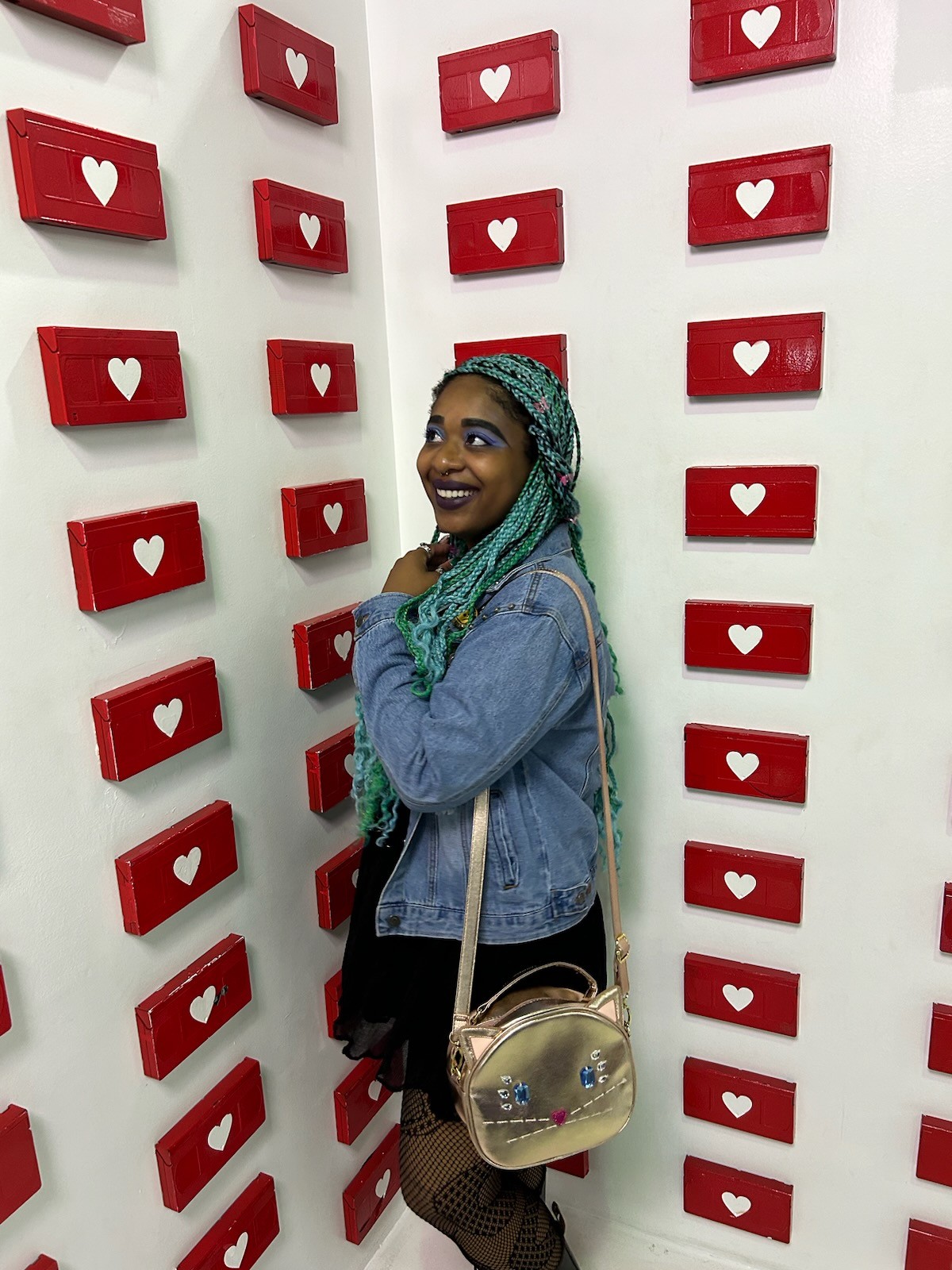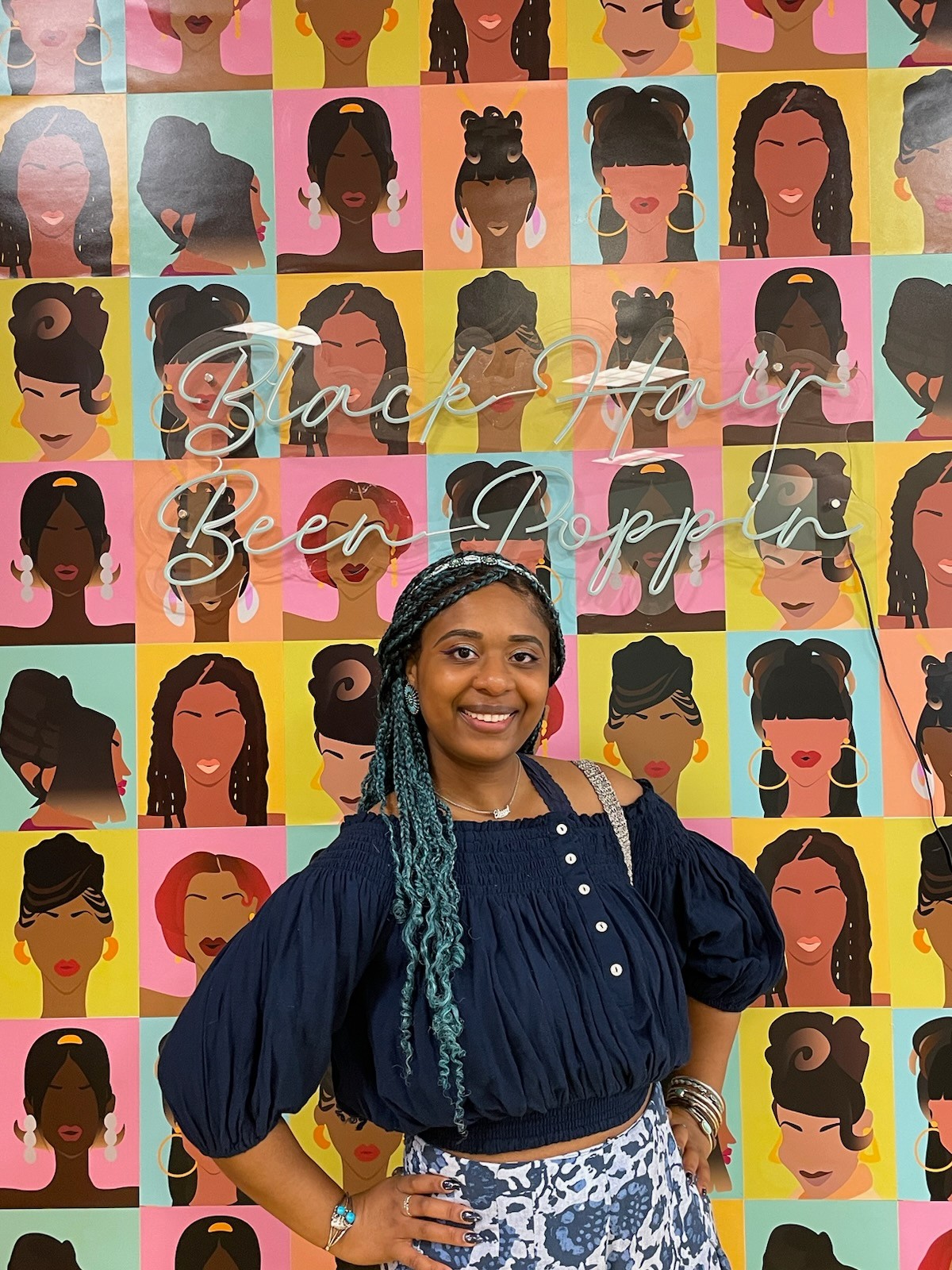We were lucky to catch up with Dr. Camille Belle recently and have shared our conversation below.
Dr. Camille, thanks for taking the time to share your stories with us today Was there a defining moment in your professional career? A moment that changed the trajectory of your career?
One of the most defining moments in my life so far has been my journey with completing my dissertation. Given that I knew before even pursuing my PhD that I wanted to be a therapist rather than a professor, I have always had a somewhat tenuous relationship with research. Although this mindset is not recommended, I envisioned my dissertation as being my only major written contribution to the field. Therefore, I came into the project already holding a lot of internalized pressure around picking a topic that was reasonable to get done on time, interesting enough to spark my passion, and unique enough to be considered as adding to the existing literature. With all of this in mind, my first challenge in my dissertation journey was picking a topic. I spent months reflecting and researching concepts that combined concepts I had been exploring in my Africana Studies courses, themes I was aware of in research and practice as a therapist, and experiences as a long term student at a PWI with strong traditions. I had never felt a strong sense of support or camaraderie within my department, and unfortunately the topic I settled on did not fall within the interests of my dissertation chair. With that in mind, my next challenge was forming a dissertation committee who would be able to understand my ideas, support my vision, and offer guidance rather than resistance along the way. Once again, this task required hours of research, communication and redirecting. However, I was able to find the additional support I needed for that moment after meeting another professor at a research presentation and asking her to join my committee as the co-chair.
Writing a dissertation is never easy, especially with all of the reading, writing, data collecting, and revising that it involves. It became especially difficult for me when my carefully laid plans were disrupted by the pandemic. My topic involved looking at the relationship between levels of racial identity and racial socialization, campus organization affiliation, and perceptions of campus climate for undergraduate students. However, shortly after I began my data collection, the pandemic forced the majority of students to leave campus and disrupted operations for on-campus organizations. It took additional time, effort, and creativity to gather enough participation from students to have statistically significant results, and even then I had to make note of the impact of the current circumstances on interpretation of the results I did get. I was also experiencing challenges in being able to consistently connect with my dissertation chair during critical moments of the writing and editing process.
After all of these hurdles, my dissertation defense ended up being held over zoom, rather than in person. While this was how most interactions were occurring at the time, it was deeply anticlimactic and even somewhat eerie to have such a monumental moment- the culmination of an almost 7 year journey- over a screen rather than in person. Overall, though I never expected the journey to be easy, I felt that the entire process was more difficult than it had to be. However, after taking time to decompress, I was able to come away with several realizations. First, I realized that I am stronger than I thought, even though I never would have wanted to be tested in that manner. Next, I realized my voice is important, and my contributions to the field of psychology- whether they be in research or practice- matter. Finally, I realized that what is for me cannot be disrupted. I have reminded myself of these affirmations at various points in my career since graduation, especially as I entered private practice.


As always, we appreciate you sharing your insights and we’ve got a few more questions for you, but before we get to all of that can you take a minute to introduce yourself and give our readers some of your back background and context?
I am a licensed counseling psychologist and I currently work at a private practice providing virtual therapy in Georgia. I primarily serve Black women and women of color who may have been described as “high functioning” or “high achieving”. What a lot of these clients have in common is feeling pressure to look like they have it all together on the outside while feeling like they might unravel on the inside. They are often used to putting others before themselves even though they could use some support as well. They are objectively successful in life but experience concerns related to anxiety, depression, “little t” trauma/identity based trauma, and/or they are simply tired of trying to squeeze themselves into boxes that others have dictated for them and want to rediscover what it is like to define their own identity.
My goal is to create a space where my clients can feel seen as a whole person. Therefore, I approach therapy from a person centered, womanist, and multicultural lens that aims to take into account the individual, societal, and systemic layers that are often involved in the concerns that bring people into therapy. Something unique about the way I work in particular is the application of theoretical or academic concepts which have been used to describe the experiences of Black women- such as the Superwoman Schema or code-switching- with therapeutic or psychological experiences such as social anxiety or depression. I believe the work can be much deeper and more validating when we focus not only on symptoms, but understanding the environmental contexts that make these defense mechanisms necessary in the first place and allow these feelings to thrive. This extra step helps to resolve some of the shame that can be associated with seeking help in a society that says our challenges are our own fault. I am proud of the journeys my clients have taken and the fact that they have chosen me to walk with them. It is always a humbling and heartwarming experience to witness someone start to step into their personal power.
I always say that I did not choose this profession, I simply followed my calling. It has always been in me to notice people who may feel marginalized or misunderstood, and to check in on people who may feel pressure to look like they have it all figured out. Back in high school, I pictured myself doing some version of this, and I have been on the path to making it possible ever since then. I think I got “here”- as in private practice- a little sooner than expected, as I initially thought that I would be in university counseling centers or community mental health spaces for several years before taking that step. Like most people, the pandemic and all of the events that followed altered my perspective on life and day to day experiences, and I ended up taking a leap of faith to seek out this position immediately following my pre-doctoral internship. I did not know it then, but this has been one of the most meaningful decisions of my life. I have been able to connect with my ideal clients and do meaningful work every week, and for that I am grateful. If you’re looking for a therapist that you can keep it real with, in an empowering, nonjudgmental, and culturally informed space- let’s connect!


Learning and unlearning are both critical parts of growth – can you share a story of a time when you had to unlearn a lesson?
Overall, the biggest lesson I had to unlearn can be summarized as the implicit concept that who I am, as I am, is not enough. Several messages fall under that umbrella, but the most prominent of those messages were that the way to succeed in life is to “keep my head down”, remain quiet and “well behaved”- or make myself small and palatable to others; that the best path to take in life is the one that is most frequently traveled; and that if I stand out or don’t fit in then I must be the one who is wrong. These concepts were implicitly introduced to me as a child and reinforced in various ways such as religious spaces, my household, my classrooms, and society as a whole. After facing various instances that ranged from uncomfortable to unjust, I realized that the cost of living this way outweighed any “success” I might attain from doing so. Further, I was never able to feel satisfied with getting ahead by betraying myself or others. These betrayals could look like feeling pressured to tolerate microaggressions at school or work in hopes of avoiding being labeled as an “angry” or “argumentative” Black woman, staying in religious spaces where all humanity was not honored in order to avoid being perceived as blasphemous or disrespectful, or taking steps in my career path that made sense to others more than myself in order to make others proud. I realized that playing by these rules that I did not create for myself did not actually get me the happiness or success that I was promised. On the contrary, I was often stressed in the environments that I felt demanded my silence, and confused and disappointed in myself for not following my heart.
I came to understand that for me personally, it is always better to stand up for myself and what I believe in and to make my own path, rather than trying to accommodate people, environments, and systems that thrive on me being less than my full self. Ironically, a lot of my clients end up realizing that the core of their concerns can be tied to some variation of this “lesson” as well. I have found that my struggles often come full circle. I had to learn to dig my way out of the pressure to go along with the status quo for Black women, and I continue to work to stay afloat so that as a therapist I can go back and be on that journey again and again with many others.
The best way for me to break free of the messages that my natural self was not acceptable was to allow myself the space to ask questions, and to challenge answers that made me feel small or unheard. I started to ask myself what concepts such as “acceptable”, “professionalism”, “discipline”, or “success” even mean and who gets to define that. Often, I realized that the people or systems who were creating the dominant definitions were not in alignment with my own values and identity, and that while resisting is hard, it is worth it. I would encourage others who find themselves struggling under the weight of not feeling that your whole self is acceptable to do the same. I learned that people who want us to remain small do not have our best interests at heart, and it is ok to leave and find spaces where we are allowed to fully bloom. Conformity does not work for everyone, silence does not work for anyone. Chances are, there is someone like you who is still afraid to speak up and your boldness may be the inspiration that they need.
If you could go back in time, do you think you would have chosen a different profession or specialty?
Absolutely not! I used to joke that I have to stay in this career because I am not good at anything else, but the (less self-deprecating) reality is that no other path has called me. I can’t imagine myself doing anything else. I am good at what I do, I love it, and I would not trade it for anything. For me, there is truly no greater joy than knowing my clients are feeling unburdened and achieving their dreams as a result of the work that we have done together. It was a long and hard journey for me, but everything up until this point has prepared me for the moment at hand. I truly believe the best is yet to come. There is more freedom, liberation, and empowerment for my clients and I on the horizon. If this interests anyone reading, I would love for you to join me!
Contact Info:
- Website: www.DrCamilleBelle.com
- Instagram: https://www.instagram.com/savedbythe_drbelle/
- Other: https://providers.therapyforblackgirls.com/listing/dr-camille-belle/
Image Credits
Todd Barron, Alia Azmat, Jamie Hayes


